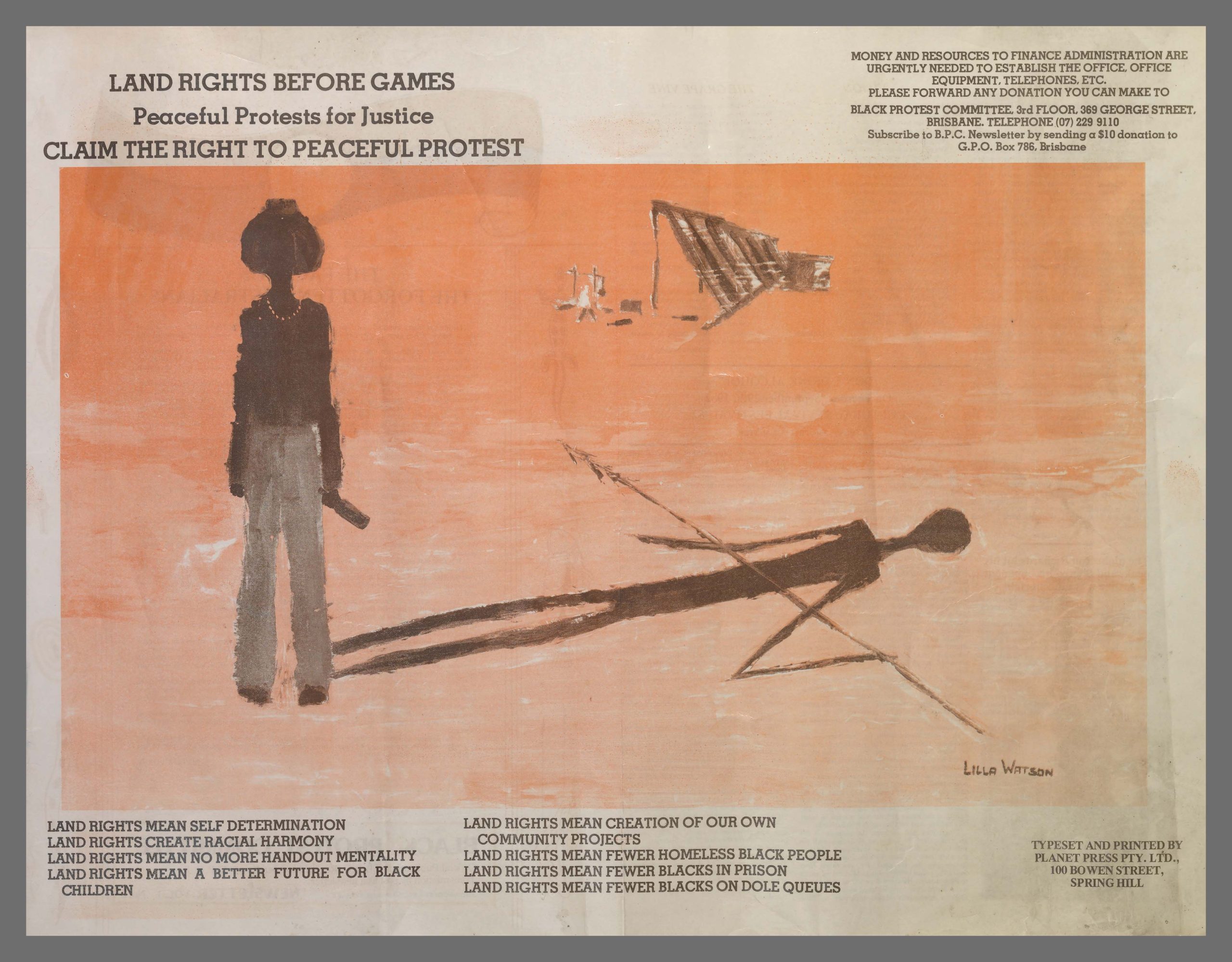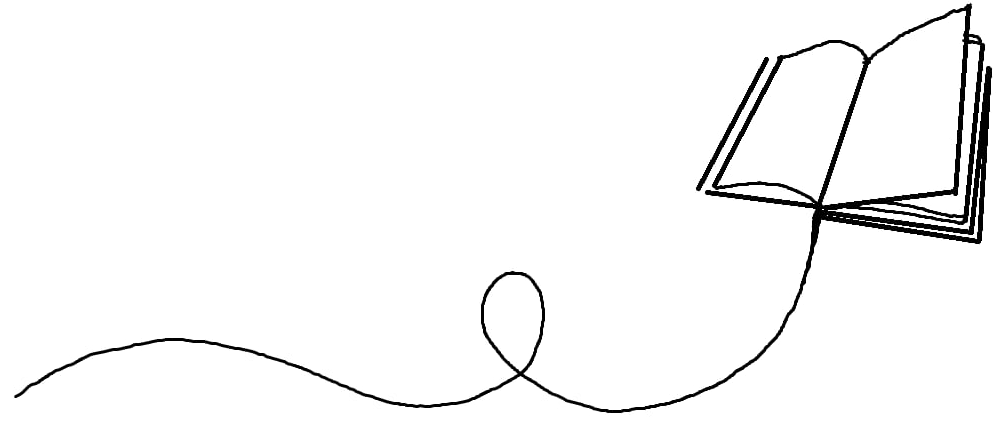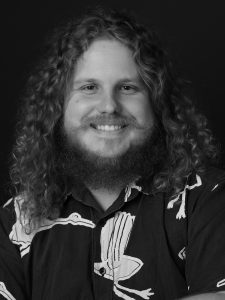14 Shadows
Coen Hird

Dr Lilla Watson was famously the first Aboriginal tutor at UQ in 1979, later going on to lecture in Aboriginal Welfare Studies. I owe my position at UQ to mob like Lilla (or rather UQ and you mob owe them because I’m a real catch). They kicked down those big White doors for us in the Academy and they’re still doing it!
Where those doors need kicking down must be lonely places. In the ‘hard sciences’ there are not too many of us moving around those spaces – for good reason. It isn’t safe for us. There is an intrinsic Whiteness there, continuously reinforced by its practice regardless of the practitioner. When I sit and think about my place here, I’m conflicted. I owe my position to those pioneers like Aunty Lilla, but they have helped leverage me into a powerful and White place. In the Academy, I feel like I can disrupt colonial violence by moving within that institutional framework which works to uphold a set of values distinct from my own. There is a burden to carry here and unpack. I look for guidance in those pioneers and Blackfullas who speak to the Academy.
This draws me naturally to Aunty Lilla’s collection in the Fryer library and I am immediately captured by her works. Such a privilege! What grabbed me was one of her paintings.
There’s a shirtless fulla in faded jeans silhouetted against iron-stained land. He’s adorned with jewellery and stands with bottle in hand. The land is featureless, in one sense, save for a lean-to and fire crackling in the distance. A few empty bottles lie there. White positionality dictates how this fulla is perceived by his coloniser.
We know better.
A tall shadow appears to follow him, but it is betrayed to me. The ‘shadow’ holds a spear and falls on the earth where the shadow of his lean-to must also fall in the western logic… But does not. I felt that shadow as spirit, refracting through Country.
Does this spirit essentialise the warrior with spear in hand? I’m reminded that a man cannot be reduced to this – my grandfathers were much more than fighters or warriors. Maybe he is talking with the spirit. Maybe he is hiding from it.
One might wonder, who is the spirit? Is it somebody who might have been? Ancestors, progeny, many things? Most importantly, to me, it is a part of that fulla in that moment. They are both connected to the land. Whiteness does not see that part of what we embody as Indigenous peoples: true legal sovereignties. That spirit on Country is what is hidden from the White gaze – they just see the fulla with a bottle in his hand.
Does my shadow hold those spirits too?
Cast on land not tied to me. But when I walk, near bark canoe
My shadow is the kangaroo.
My shadows are the eucalypts
Fire smoke black peppermint. And knowing my old people flew
I walk within their shadows too.
***
Aunty Lilla’s painting evokes refusal in me. What they imagine us to be is not what we are. I REFUSE to become what they imagine me to be. And in refusal, I hope to bring my kin with me and honour Trawlwoolway Pakana. I continue to participate, in Whiteness, in parallel, but to me Lilla paints it simply: I belong to a land that the West never will.
* * *
Link to the Fryer Library Collection
Black Protest Committee and Lilla Watson (Gungalu & Biri Gubba), ‘Land rights before Games : claim the right to peaceful protest : peaceful protests for justice’, 1982, Lilla Watson Papers, UQFL576, Parcel 1, Fryer Library, The University of Queensland.

Biography
Coen Hird is Trawlwoolway Pakana with connection to northeast Lutruwita through the Baker/Hearps family line. Coen is a researcher and teacher at the University of Queensland focused on ecology, climate change biology, and conservation. Coen is an advocate for the respect of Indigenous peoples, cultures, and ways of thinking within the sciences.

